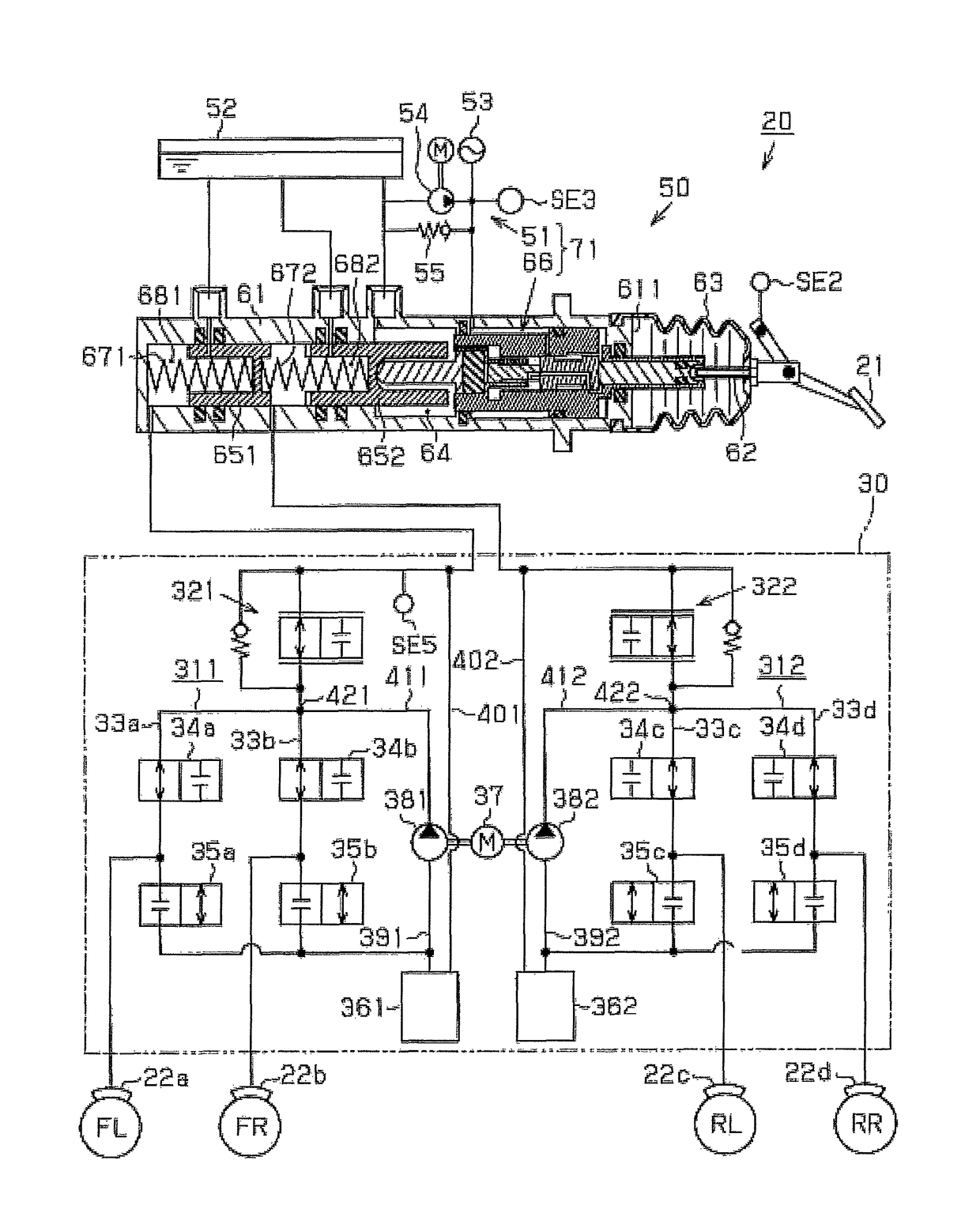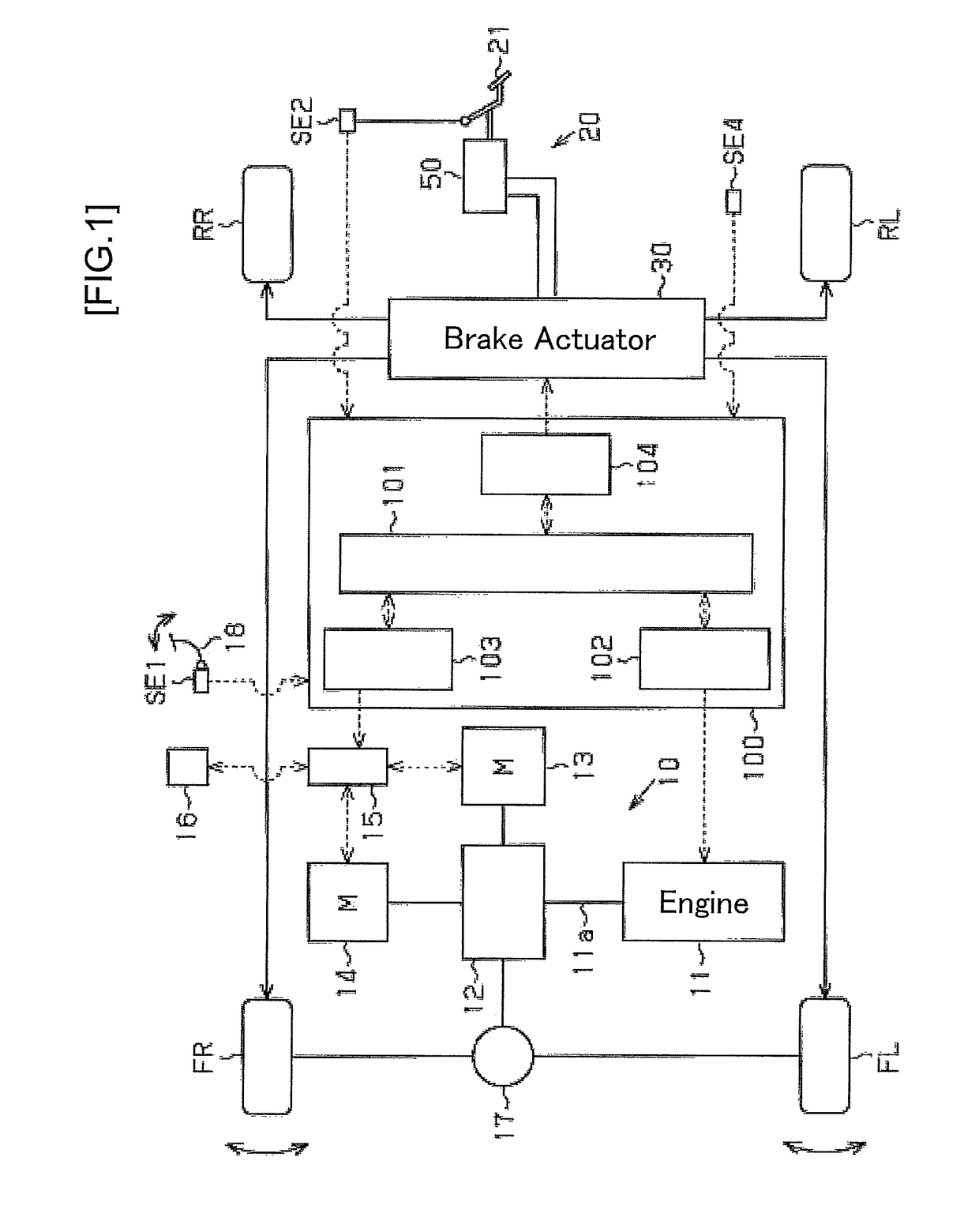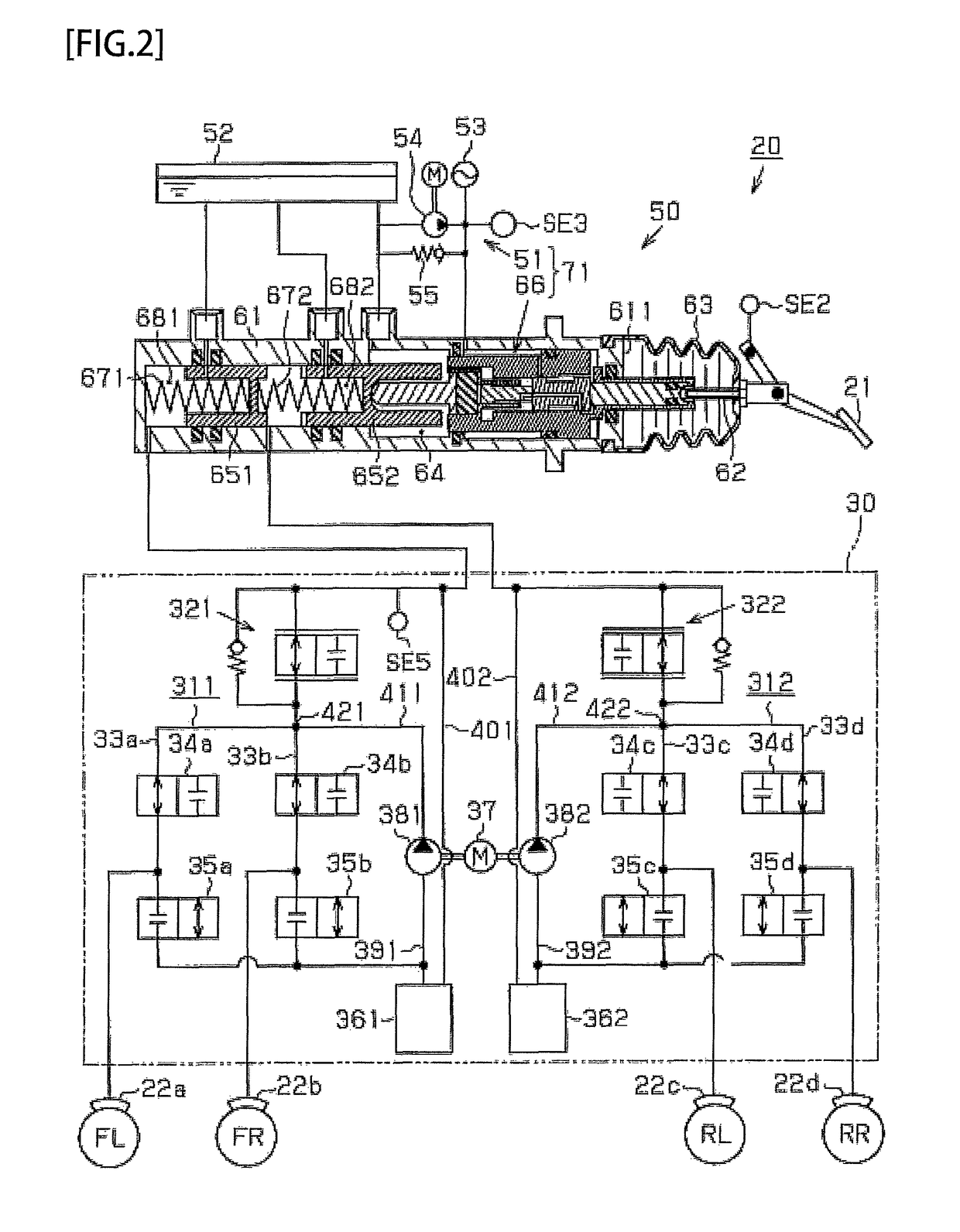Vehicle brake system
a brake system and vehicle technology, applied in the direction of brake systems, battery/fuel cell control arrangement, propulsion by batteries/cells, etc., can solve the problems of reducing the state of charge of the vehicle, the brake operation thus reducing the vehicle body speed, and the regeneration braking force is harder to control. , to achieve the effect of reducing the increasing the decrease gradient of regeneration braking force, and reducing the state of charg
- Summary
- Abstract
- Description
- Claims
- Application Information
AI Technical Summary
Benefits of technology
Problems solved by technology
Method used
Image
Examples
first embodiment
[0041]A vehicle brake system according to a first embodiment will now be described below with reference to FIGS. 1 to 10. It is assumed in the following description herein that the vehicle travels (advances) forward (ahead of the vehicle).
[0042]FIG. 1 depicts a hybrid vehicle including the brake system according to the present embodiment. As depicted in FIG. 1, the hybrid vehicle includes a two-motor hybrid system 10, a hydraulic brake device 20 configured to apply braking force (hydraulic braking force) to all wheels FL, FR, RL, and RR, and a control device 100 configured to totally control the vehicle.
[0043]The hybrid system 10 includes an engine 11 operated by supplied fuel such as gasoline. The engine 11 has a crank shaft 11a that is coupled to a first motor 13 and a second motor 14 via a power transmission mechanism 12 having a planetary gear mechanism and the like. The power transmission mechanism 12 divisionally transmits motive power from the engine 11 to the first motor 13 ...
second embodiment
[0131]A vehicle brake system according to a second embodiment will be described next with reference to FIGS. 11 and 12. The brake system according to the second embodiment includes a booster device configured differently from that of the first embodiment. The following description will mainly refer to the differences from the first embodiment and will not repeatedly refer to the members configured identically to those of the first embodiment, which are denoted by the identical reference signs.
[0132]FIG. 11 depicts a basal fluid pressure supply device 50A included in the hydraulic brake device 20. As depicted in FIG. 11, provided between a master cylinder 61A and the brake pedal 21 is a booster device 71A of the negative pressure type. The booster device 71A includes a booster shell 120 fixed at a position shifted in the canceling direction −X from the master cylinder 61A. The booster shell 120 includes a front shell 121 on a side in the operating direction +X and a rear shell 122 on...
third embodiment
[0155]A vehicle brake system according to a third embodiment will be described next with reference to FIGS. 13 and 15. The brake system according to the third embodiment is different from those of the first and second embodiments in a method of changing the details of the reallocation control in accordance with the state of charge SOC of the battery 16. The following description will mainly refer to the differences from the first and second embodiments and will not repeatedly refer to the members configured identically to those of the first and second embodiments, which are denoted by the identical reference signs.
[0156]Initially described with reference to a map in FIG. 13 is a method of determining the start determination value VSTh1.
[0157]The brake system according to the present embodiment sets a reference start determination value VSTh1B corresponding to the state of charge SOC of the battery 16 with reference to the map in FIG. 13 for determining the start determination value ...
PUM
 Login to View More
Login to View More Abstract
Description
Claims
Application Information
 Login to View More
Login to View More - R&D
- Intellectual Property
- Life Sciences
- Materials
- Tech Scout
- Unparalleled Data Quality
- Higher Quality Content
- 60% Fewer Hallucinations
Browse by: Latest US Patents, China's latest patents, Technical Efficacy Thesaurus, Application Domain, Technology Topic, Popular Technical Reports.
© 2025 PatSnap. All rights reserved.Legal|Privacy policy|Modern Slavery Act Transparency Statement|Sitemap|About US| Contact US: help@patsnap.com



